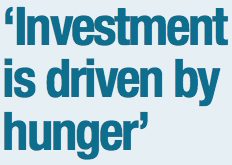In March of this year, OakNorth became the first digital-focused challenger bank in the UK to report an annual profit (£10.6m pre-tax after its full second year of operation, for the curious). Joel Perlman shared with us his opinion on the future of the financial industry, and who will win the race for innovation.
Traditional financial institutions often rely on fintech startup acquisition to keep up with innovation. Why do you think that is? Is creativity exclusively start-up?
The world’s largest tech companies have proven that creativity isn’t exclusively for start-ups. I think traditional financial institutions are more than capable of innovating, but there are a number of factors that hold them back: their legacy IT systems, which mean that any changes will be extremely costly and time-consuming; the regulatory barriers they face as systemically important financial institutions; and finally but most importantly, customer inertia, which means they don’t really need to spend time on innovating because the majority of customers are willing to stay with them even if it means lower rates, less transparent processes, and longer transaction times.
Are the odds stacked unfavourably against startups? Banks have more resources, but startups move better in the digital space. Which do you think has more staying power?
Of course, the odds are stacked unfavourably against startups, but that doesn’t mean they can’t succeed or make a significant dent in their industry. The large, high-street banks have been around for hundreds of years and they’ll still be around in hundreds of years, but what I think will have changed is the consumer’s behaviour towards them. The majority of consumers and businesses still treat their bank as a one-stop shop, keeping most of their financial products with just one institution, rather than shopping around for the best products and services for their needs. In the future, I think what we’ll see is a lot more individuals and businesses banking with multiple providers – they might have their current account with one, their savings account with another, go to another for a loan, another for a credit card, and so on.
There is a school of thought that banks are behind the ‘campaign’ to make the population believe we all want and need financial services to be fully digitised, but that, in fact, will mostly benefit the banks themselves (as they will be able to cut costs by closing branches and services). What do you think about that?
Digitisation can of course be hugely beneficial to both the banks and their customers, but it depends on who their customers are. For elderly people who don’t necessarily have access to a computer or smartphone, the ability to do their banking in a branch is essential. Equally, for people who might live in remote areas with poor broadband speeds, online or app-based banking might not be a good fit for them – phone banking would be better. If banks want to appeal to all customers, then they need to offer a broad array of ways in which to bank with them – online, phone, app, in-branch, etc.
At OakNorth, some products and services are fully digitised, while others rely on people for a portion of the process. For example, the process of opening a business or individual savings account with us is fully digitised, and the entire function is managed by only three people. For our lending products however, while we use technology to make the process faster, more efficient and more robust, we give every borrower the chance to meet a Credit Committee (the decision makers) and discuss their borrowing needs directly with them. As such, people play a vital role in the process, and will ultimately make the lending decision, not a computer.
A lot of fintech founders are ex-bankers. Do you need the killer instinct (and, crucially, connections) that a career in traditional finance often brings with it to succeed in the space?
 My business partner, Rishi Khosla, and I are fintech founders but we’re not ex-bankers. We’re entrepreneurs and it was our experience of trying to raise capital for our first business (Copal Amba – now part of Moody’s Corporation) that gave us the inspiration to launch OakNorth and ACORN machine. Our background as entrepreneurs has enabled us to build a proposition that appeals to other entrepreneurs and develop a competitive advantage over high-street banks that are run by bankers. While a killer instinct and connections can be very useful, there are several other traits and factors that contribute to success – in our view, hunger is the most important, and often most overlooked, asset for any entrepreneur. Hunger is what gives an entrepreneur the illogical conviction and fiery eye that makes an investor invest in his or her company on the spot. It’s the only secret hiding in plain daylight behind most of today’s most successful entrepreneurs—not their originality, not their connections, not their killer instinct, not their ideas, not their passion, but their hunger.
My business partner, Rishi Khosla, and I are fintech founders but we’re not ex-bankers. We’re entrepreneurs and it was our experience of trying to raise capital for our first business (Copal Amba – now part of Moody’s Corporation) that gave us the inspiration to launch OakNorth and ACORN machine. Our background as entrepreneurs has enabled us to build a proposition that appeals to other entrepreneurs and develop a competitive advantage over high-street banks that are run by bankers. While a killer instinct and connections can be very useful, there are several other traits and factors that contribute to success – in our view, hunger is the most important, and often most overlooked, asset for any entrepreneur. Hunger is what gives an entrepreneur the illogical conviction and fiery eye that makes an investor invest in his or her company on the spot. It’s the only secret hiding in plain daylight behind most of today’s most successful entrepreneurs—not their originality, not their connections, not their killer instinct, not their ideas, not their passion, but their hunger.




